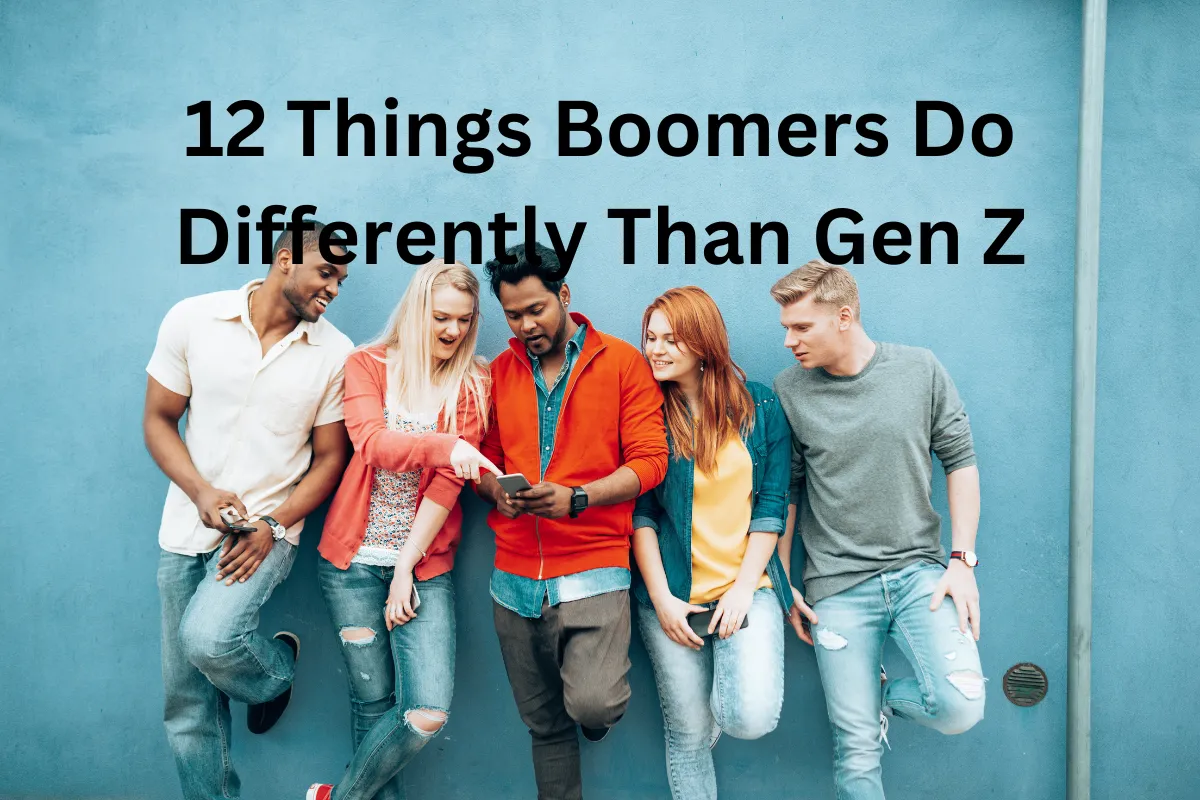In a world that’s constantly evolving, the characteristics and behaviors of different generations often shape the way we perceive the world.
Baby Boomers and Generation Z represent two vastly different cohorts, separated by decades and distinct cultural influences.
This article delves into the unique aspects of each generation, highlighting 12 key differences in the way Boomers and Gen Z navigate life.
The Communication Revolution
The first notable difference between Boomers and Gen Z lies in their approach to communication.
While Boomers may prefer face-to-face or phone conversations, Gen Z thrives in the digital realm.
Embracing instant messaging, social media, and emojis, Gen Z has redefined the way we connect.
Work Ethic and Career Choices
Boomers often adhere to a traditional work ethic, valuing stability and longevity in a single career.
On the contrary, Gen Z displays a penchant for flexibility, remote work, and entrepreneurship.
Understanding these generational distinctions can foster a more inclusive work environment.
Technological Adaptability
Boomers may have witnessed the birth of personal computers, but Gen Z was practically born with smartphones in hand.
Explore how each generation navigates technological advancements and adapts to the ever-changing digital landscape.
Cultural Influences on Values
Boomers grew up in the aftermath of World War II, shaping their values around resilience and community.
In contrast, Gen Z is deeply influenced by a globalized world, embracing diversity, and advocating for social justice.
Explore how these cultural differences impact their perspectives on life.
Financial Mindsets
Unravel the nuances of financial attitudes between Boomers and Gen Z.
Boomers, having experienced economic fluctuations, may prioritize saving and investments.
Gen Z, on the other hand, approaches finances with a more entrepreneurial spirit, seeking diverse income streams.
Educational Pursuits
Boomers often followed traditional educational paths, valuing degrees and certifications.
Gen Z, however, is more likely to explore alternative education models, such as online courses, coding bootcamps, and self-directed learning.
Understand how these generational preferences impact the future of education.
Approach to Health and Wellness
Boomers may lean towards conventional health practices, while Gen Z explores holistic well-being, mindfulness, and the intersection of technology with healthcare.
Examine the evolving attitudes towards health in the context of generational shifts.
Social Activism and Advocacy
Both Boomers and Gen Z have witnessed and participated in social movements, but their approaches differ.
Boomers were pivotal in civil rights and anti-war movements, while Gen Z actively engages in social media activism, advocating for inclusivity, climate action, and human rights.
Homeownership Trends
Boomers often aspired to own homes as a symbol of stability, while Gen Z is more open to renting and prioritizes experiences over possessions.
Explore the changing dynamics of homeownership and how it reflects the evolving priorities of each generation.
Entertainment Preferences
From classic rock to streaming platforms, Boomers and Gen Z have distinct entertainment preferences.
Delve into the cultural influences that shape their choices in music, movies, and digital content consumption.
Travel Habits
Boomers may favor organized tours and traditional travel experiences, whereas Gen Z seeks adventure, authenticity, and cultural immersion.
Uncover the generational disparities in travel habits and explore how each group defines the perfect vacation.
Attitudes Toward Retirement
As Boomers approach retirement, their expectations and preparations differ significantly from those of Gen Z, who may prioritize experiences and unconventional career paths over traditional retirement goals.
Explore how generational attitudes towards retirement are evolving.
Conclusion
In this exploration of the 12 things Boomers do differently than Gen Z, we’ve uncovered a myriad of distinctions that shape their perspectives, behaviors, and life choices.
Understanding these differences fosters empathy and paves the way for intergenerational collaboration in our ever-changing world.
FAQs
Are these generational differences absolute, or are there exceptions within each group?
While generational trends provide general insights, it’s essential to recognize that individuals within each generation can exhibit a wide range of behaviors and preferences. Not everyone conforms to the stereotypes associated with their generation.
Do Boomers and Gen Z share any common ground in their values or attitudes?
Despite their differences, both generations share common ground in the desire for a better future, a sense of community, and the pursuit of happiness. Understanding these shared values can bridge the generational gap.
How can businesses leverage the strengths of both Boomers and Gen Z in the workplace?
Creating a diverse and inclusive workplace that values the strengths of each generation fosters collaboration and innovation. Recognizing the unique contributions of Boomers and Gen Z can lead to a more dynamic and successful team.
What advice do Boomers have for Gen Z, and vice versa?
Boomers may offer insights based on their life experiences, emphasizing perseverance and resilience. Gen Z, in turn, can provide fresh perspectives, embracing innovation and adaptability. Mutual respect and open communication are key.
How can families bridge the generation gap and maintain strong connections?
Open and honest communication, along with a willingness to understand each other’s perspectives, is crucial. Engaging in activities that appeal to both generations and celebrating shared experiences can strengthen family bonds across generations.



